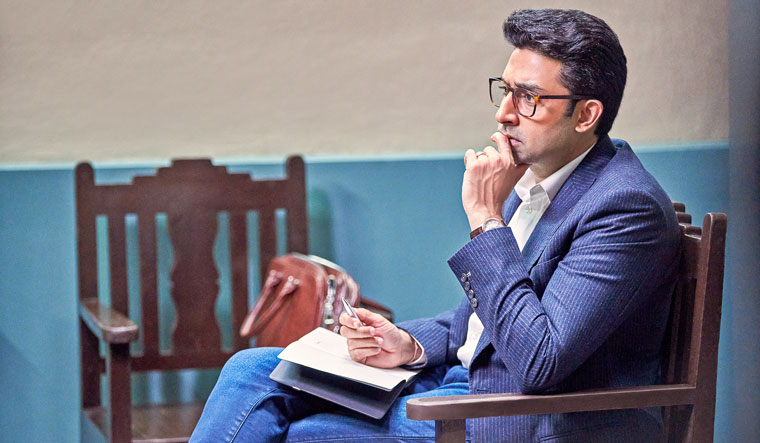Abhishek Bachchan made his debut on the big screen with Refugee (2000). Twenty years on, he has now made his digital debut with Amazon Prime Video’s Breathe: Into The Shadows that sees him play a psychiatrist in search of his missing daughter. Around ten days before he tested positive for Covid-19, Abhishek spoke to THE WEEK about his journey in the film industry and his foray into the web world. Excerpts:
Q/How do you look back at these 20 years of being an actor?
A/I look back upon them with a great amount of regard, a lot of happiness but above all with gratitude and an immense amount of humility. Gratitude to the audiences which have patronised my work and because of that I get to celebrate 20 years in the film industry. That is a huge honour which I take very seriously. An actor is truly blessed to be a part of one film. It is very difficult. To be able to do it for 20 years is a blessing. I remember my friend Aditya Chopra told me at the very start of my career that very seldom does the audience decide to love somebody. ‘If they decide to love you,’ he said, ‘they will keep you on cloud nine. Don’t ever disrespect that love and work hard every day to keep earning it. Because, if they fall out of love with you, nothing is gonna help you out.’
Q/What drew you to Breathe: Into The Shadows?
A/I just really liked the story. When Vikram Malhotra (producer, Abundantia Entertainment) and Mayank Sharma (director) came in and narrated the story to me, I loved it. At that point, it wasn’t a detailed script, it was just a story arc. I thought the basic concept of the show was very emotional and I was drawn to it.
Q/How do you think the advent of streaming services is changing the entertainment game?
A/I am not so sure. But to be honest, at the end of the day, it is about getting your product out to the audience and as long as you can do that successfully, you are fine; you should not complain. Here is another medium through which we can reach out to our audience. First, it was just the cinema hall, then came the television, and now you have streaming services and it is just nice. I don’t think we should question it. One should just be thankful for it.
Q/In your interviews during Manmarziyaan, you spoke about the complacency creeping in and the break you took before that. How did the break help you? Did something change when you made a comeback?
A/You know what is really amazing about this? It is that it really doesn’t matter how it changed me. It is whether I have been to work or not and whether you enjoy my work. At the end of the day, it is about the audience.... But I finally started acting upon things that I wanted to do, which previously I didn’t. Maybe that is where the complacency was. Everything is hunky-dory, everything is good, don’t fix something that isn’t broken—that was the attitude. But after that, I guess, what changed was that I realised that this was how I wanted to work, this was the kind of work I wanted to do, and this was how [I could] go about it. So, maybe I started implementing what I was thinking.


